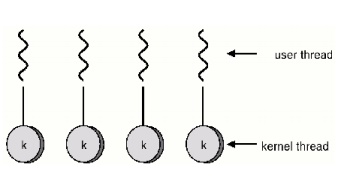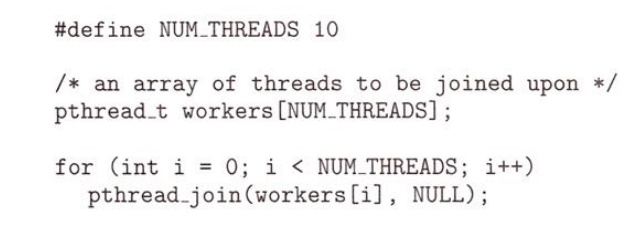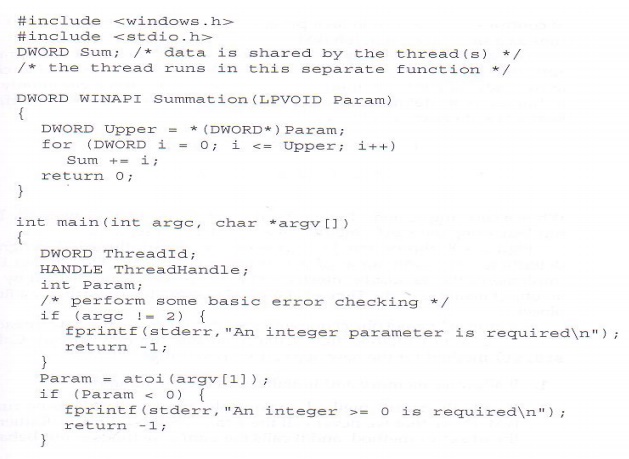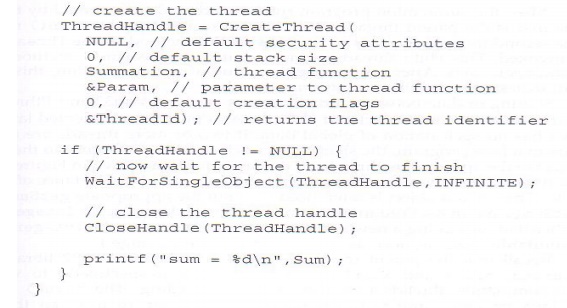Chapter: Operating Systems : Process Scheduling and Synchronization
Thread Libraries
THREAD
LIBRARIES

Thread
libraries provide programmers with an API for creating and managing threads.
Thread
libraries may be implemented either in user space or in kernel space. The
former involves API functions implemented solely within user space, with no
kernel support. The latter involves
system calls, and requires a kernel with thread library support.
There
are three main thread libraries in use today:
1.POSIX Pthreads - may be
provided as either a user or kernel library, as an extension to the
POSIX standard.
2. Win32
threads - provided as a kernel-level library on Windows systems.
3. Java threads
- Since Java
generally runs on
a Java Virtual
Machine, the
implementation of threads is based upon whatever OS and
hardware the JVM is running on, i.e. either Pthreads or Win32 threads depending
on the system.
ü The
following sections will demonstrate the use of threads in all three systems for
calculating the sum of integers from 0 to N in a separate thread, and storing
the result in a variable "sum".
1. Pthreads
The POSIX standard ( IEEE 1003.1c ) defines the specification
for pThreads, not the implementation.
ü pThreads
are available on Solaris, Linux, Mac OSX, Tru64, and via public domain
shareware for Windows.
ü Global
variables are shared amongst all threads.
ü One
thread can wait for the others to rejoin before continuing.
ü pThreads
begin execution in a specified function, in this example the runner( )
function:

2. Java
Threads
ü ALL Java
programs use Threads - even "common" single-threaded ones.
ü The
creation of new Threads requires Objects that implement the Runnable Interface,
which means they contain a method "public void run( )" . Any
descendant of the Thread class will naturally contain such a method. ( In
practice the run( ) method must be overridden / provided for the thread to have
any practical functionality. )
ü Creating
a Thread Object does not start the thread running - To do that the program must
call the Thread's "start( )" method. Start( ) allocates and
initializes memory for the Thread, and then calls the run( ) method. (
Programmers do not call run( ) directly. )
ü Because
Java does not support global variables, Threads must be passed a reference to a
shared Object in order to share data, in this example the "Sum"
Object.
ü Note that
the JVM runs on top of a native OS, and that the JVM specification does not specify
what model to use for mapping Java threads to kernel threads. This decision is
JVM implementation dependant, and may be one-to-one, many-to-many, or many to
one.. ( On a UNIX system the JVM normally uses PThreads and on a Windows system
it normally uses windows threads. )
3. Windows
Threads
Similar to pThreads. Examine the code example to see the
differences, which are mostly syntactic & nomenclature:


Related Topics